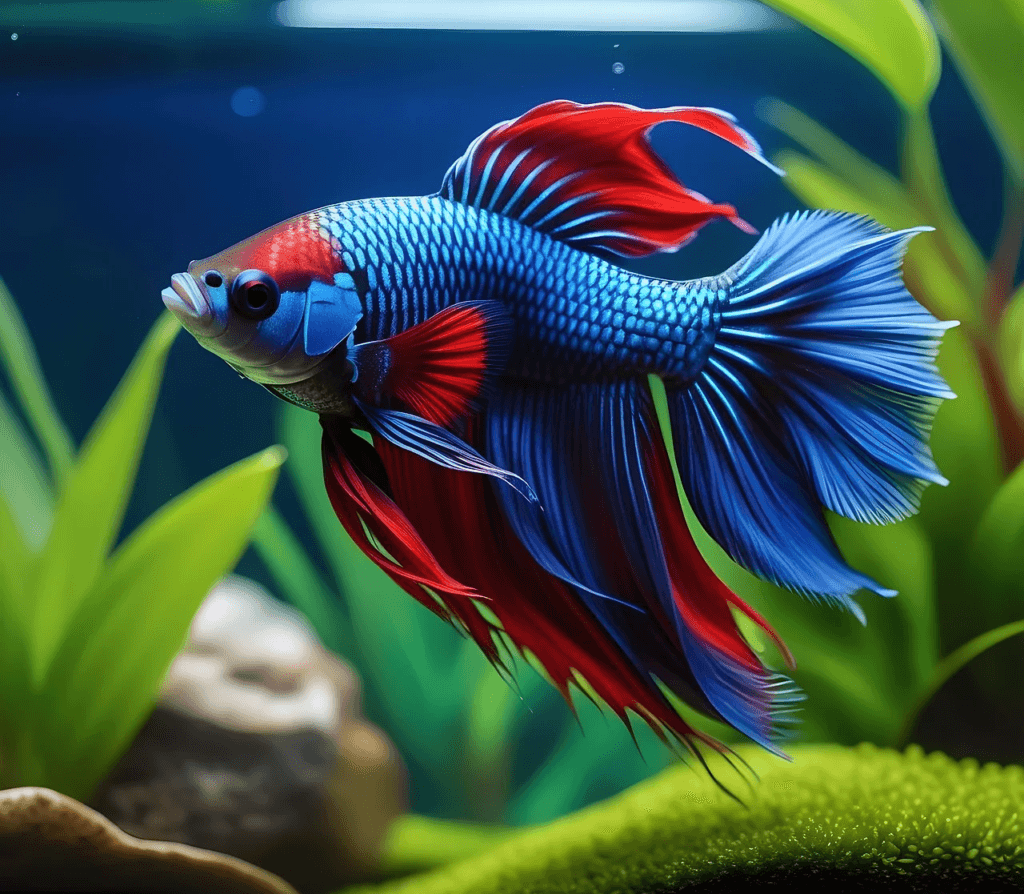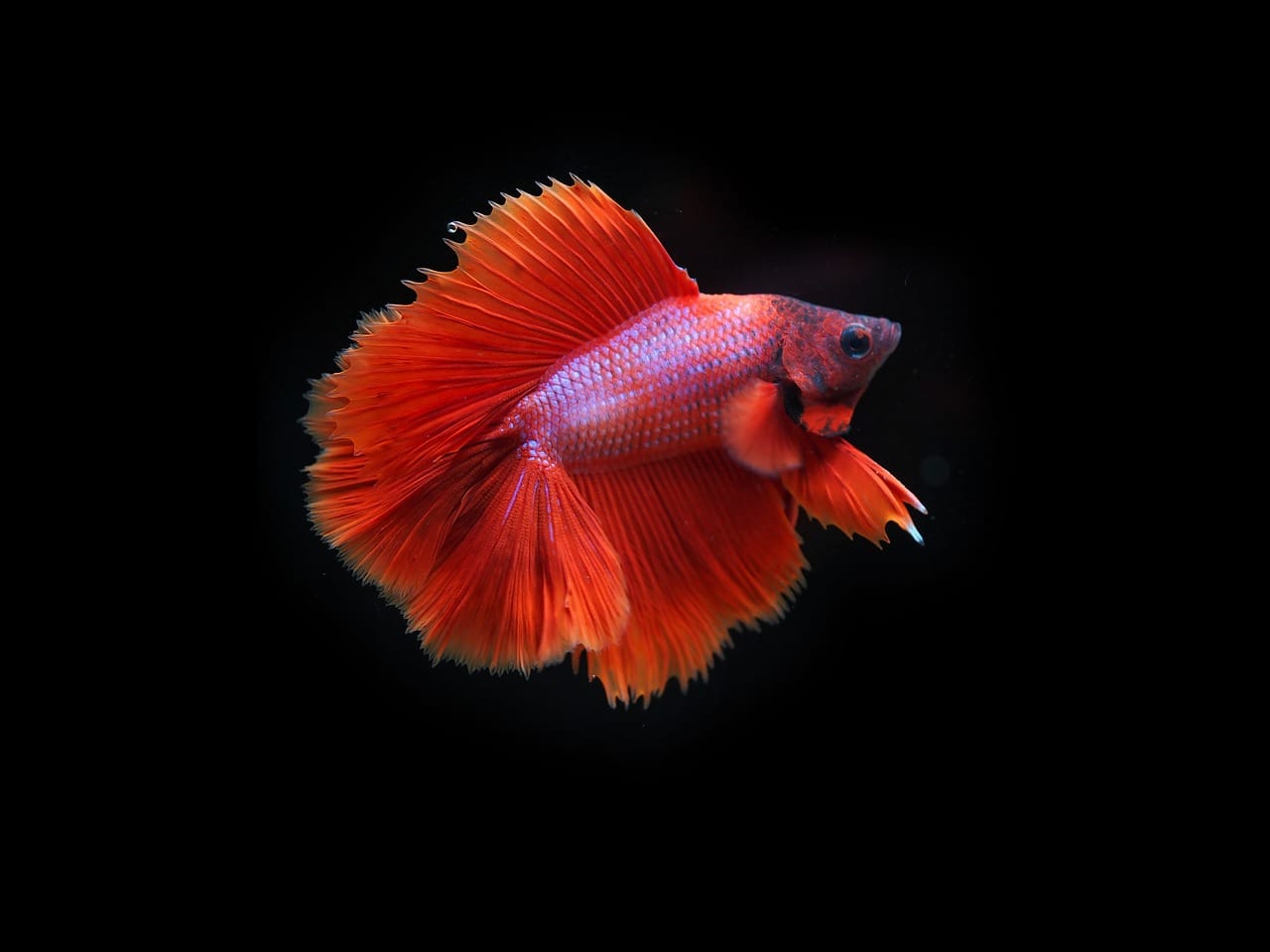Betta fish, also known as Siamese fighting fish, are among the most stunning and popular pet fish worldwide. Known for their vibrant colors, flowing fins, and bold personalities, bettas make a captivating addition to any home aquarium. This article will guide you through everything you need to know about caring for betta fish, from their origins to creating the ideal habitat.
Introduction to Betta Fish
Native to Southeast Asia, bettas are found in shallow waters like rice paddies, ponds, and slow-moving streams. Their natural habitat makes them hardy and adaptable, but they thrive best in environments designed to meet their specific needs.
Key Features of Betta Fish:
- Lifespan: 3–5 years with proper care.
- Size: 2.5–3 inches in length.
- Colors: Wide variety, including red, blue, yellow, and multicolor.
- Behavior: Solitary and territorial, especially males.
Creating the Perfect Betta Habitat
1. Tank Size
While bettas are often kept in small bowls, they actually require more space to stay healthy.
- Minimum tank size: 5 gallons.
- Larger tanks are ideal for maintaining stable water parameters.
2. Water Conditions
- Temperature: 75°F–80°F (24°C–27°C).
- pH: Neutral to slightly acidic (6.5–7.5).
- Filtration: Use a gentle filter to avoid strong currents that can stress bettas.
3. Decorations and Plants
- Include hiding spots like caves and smooth decorations.
- Live plants such as Java fern or Anubias provide natural shelter and improve water quality.

Looking for a stylish and convenient home for your Betta fish? The Aqueon Betta Falls 3 Section Aquarium is perfect for housing multiple Bettas in separate sections with a calming waterfall feature. Check it out on Amazon and give your fish a unique and serene habitat!
Betta Fish Diet
Bettas are carnivorous and thrive on a protein-rich diet.
- Staple Foods: High-quality betta pellets or flakes.
- Treats: Freeze-dried or live foods like bloodworms and brine shrimp.
- Feeding Tips: Feed 2–3 small meals daily. Remove uneaten food to maintain water quality.
How long can betta fish go without food ?
Betta fish can typically go without food for 4 to 7 days under normal conditions. However, their ability to survive depends on their overall health and the water conditions in the tank. While Bettas are hardy, prolonged fasting can weaken their immune system and lead to health issues.
If you plan to be away:
- Ensure the tank is clean and water parameters are stable before leaving.
- Consider using an automatic feeder or arranging for someone to feed your Betta small portions.
Avoid fasting for more than 3-4 days regularly, as it can stress your Betta. Regular feeding of a balanced diet helps maintain their health and vibrant coloration.
Betta Behavior and Compatibility
1. Male Betta Behavior
Male bettas are highly territorial and should not be kept with other male bettas. They may also attack fish with long fins or bright colors.
2. Female Betta Behavior
Female bettas are less aggressive and can sometimes be housed together in “sorority” tanks, though this requires careful monitoring.
3. Compatible Tankmates
- Peaceful fish like neon tetras, snails, or corydoras.
- Avoid fin-nipping or aggressive species.
4. Do betta fish sleep?
Yes, Betta fish do sleep! Like most fish, Bettas require rest to stay healthy. They usually sleep at night when the environment is dark, but they may also take short naps during the day. Bettas often rest on plant leaves, the tank bottom, or even floating near the surface. Their sleep can appear unusual as they remain motionless but still breathe slowly. Providing a consistent day-night cycle with appropriate lighting and hiding spots in the tank helps ensure they get proper rest.
Betta Fish Health
Regular monitoring and proper care can prevent many common betta fish health issues.
1. Common Diseases
- Fin Rot: Caused by poor water quality; treat with antibiotics and water changes.
- Ich: Small white spots on the body; treat with temperature adjustments and medication.
- Swim Bladder Disorder: Often due to overfeeding; resolve by fasting or feeding deshelled peas.
2. Prevention Tips
- Maintain clean water by performing 25% water changes weekly.
- Use a water conditioner to neutralize chlorine and other harmful chemicals.
- Monitor for signs of stress or illness, such as faded colors or clamped fins.
Fun Facts About Betta Fish
- Male bettas build bubble nests as part of their mating behavior.
- Bettas can recognize their owners and may follow your finger along the tank glass.
- They have a labyrinth organ, allowing them to breathe air from the surface.
Conclusion
Betta fish are not just beautiful but also rewarding pets for fish enthusiasts of all levels. By providing them with a suitable environment, a nutritious diet, and proper care, you can enjoy the company of these stunning fish for years to come.
Ready to welcome a betta into your aquarium? Explore more tips on Caring for Aquarium Fish to keep your aquatic friends happy and healthy.


1 thought on “Betta Fish (Siamese Fighting Fish): A Complete Care Guide for Beginners”
Comments are closed.